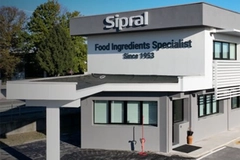
- Industry news
Industry news
- Category news
Category news
- Reports
- Key trends
- Multimedia
- Journal
- Events
- Suppliers
- Home
- Industry news
Industry news
- Category news
Category news
- Reports
- Key trends
- Multimedia
- Events
- Suppliers
EC evaluates European Food Safety Authority to boost specialty food ingredient sector

The European Commission is evaluating the European Food Safety Authority’s (EFSA) performance to boost the safe specialty food ingredient sector, enhancing the global competitiveness and excellence of the EU F&B industry.
Specialty food ingredients (including vitamins, fibers, functional carbohydrates, additives, special proteins, fats, and salt replacers) are incorporated into foods and beverages for their nutritional and technological attributes.
Most specialty food ingredients must undergo a pre-market authorization, which includes an EFSA safety assessment, before being used.
Food innovation
The variety of specialty food ingredients is the result of continuous and substantial investment in innovation by EU manufacturers to provide nutritional and technological solutions that meet the evolving societal demands for safe, healthy, tasty, convenient, sustainable, and affordable F&B solutions.
However, submitting a novel food ingredient application to EFSA has become overly complex. On average, budget and resources have doubled, and the intake phase now takes around seven months instead of 30 days.
Moreover, the risk assessment is influenced by ever-changing factors, such as numerous inquiries about well-built applications caused by experts’ limited understanding of food technology and production, not in line with real-world settings of ingredients’ development and production, especially at a pilot scale.
EU business operators are willing to provide EFSA with the essential information required to assess the ingredient’s safety. However, they are increasingly skeptical about the value of an EU application, as they perceive it as a waste of money and effort, which deters new applications.
According to the Federation Of European Specialty Food Ingredients Industries, this is exacerbated by the prevalence of generic authorizations.
“The speed and consistency of EFSA’s scientific evaluations are essential for maintaining the economic viability and competitiveness of the specialty food ingredients industry in the EU,” it says.
Improvements needed
EU Specialty Food Ingredients believes improvements are needed, including revamping the interaction between applicants and EFSA with technical hearings, direct answers to applicants’ questions, and serious consideration of the industry’s feedback on EFSA draft guidance documents.
It also wants to simplify the operational process, including confidentiality procedures, and strengthen EFSA experts’ understanding of food technologies and knowledge of food legislation.
Prioritizing EFSA resources for efficient risk assessment and communications, rather than for administrative operations, is also flagged.
“While maintaining a clear distinction between assessing and managing risks, the European Commission has now the responsibility to ensure that EFSA performs risk assessments efficiently and proportionately. Urgent measures are necessary, recognizing EU applicants of specialty food ingredients as valuable partners in a competitive international environment, without risking food innovation,” continues EU Specialty Food Ingredients.
The association will participate in the open public consultation to share these concerns ahead of a Commission report, which is expected in 2026.


















